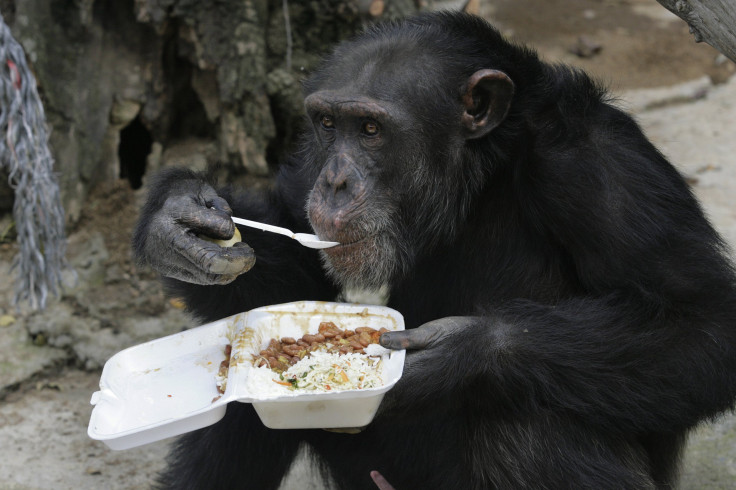Chimpanzees’ Intelligence Hugely Dependent On Genes They Inherit From Parents

The level of intelligence in chimpanzees, just like in humans, varies from one individual to another, and the differences in their intellect are attributed to the genes they inherit from their parents, according to a new study.
Chimpanzees, who can learn words, use hand gestures to communicate with each other and remember past events, depend on their genetic makeup for as much as half of their cognitive, or mental, abilities while environmental factors could be less important for the development of the apes’ brainpower than previously thought, researchers said in the study, published in the journal Current Biology on Thursday.
“Intelligence runs in families,” William Hopkins, a primatologist at the Yerkes National Primate Research Center in Atlanta, said in a statement. “The suggestion here is that genes play a really important role in their performance on tasks while non-genetic factors didn't seem to explain a lot. So that's new.”
Previous studies have shown that human intelligence is inherited through genes while other factors, such as formal education and socioeconomic status, also play a crucial role in the overall development of a human child’s intellect. However, chimpanzees do not have these additional socio-cultural influences, according to the researchers.
“Chimps offer a really simple way of thinking about how genes might influence intelligence without, in essence, the baggage of these other mechanisms that are confounded with genes in research on human intelligence,” Hopkins said.
As part of the study, the researchers examined the behavior of 99 captive chimpanzees within the age groups of nine years to 54 years. The chimps had to complete 13 tests measuring various abilities, including how they use tools and react to sounds.
The chimpanzees in the study had an extensive family tree, including siblings to fourth and fifth cousins, which allowed the researchers to determine how well cognitive abilities of the apes are connected to genetic relatedness, National Geographic reported.
“We wanted to see if we gave a sample of chimpanzees a large array of tasks would we find essentially some organization in their abilities that made sense. The bottom line is that chimp intelligence looks somewhat like the structure of human intelligence,” Hopkins said.
© Copyright IBTimes 2024. All rights reserved.





















